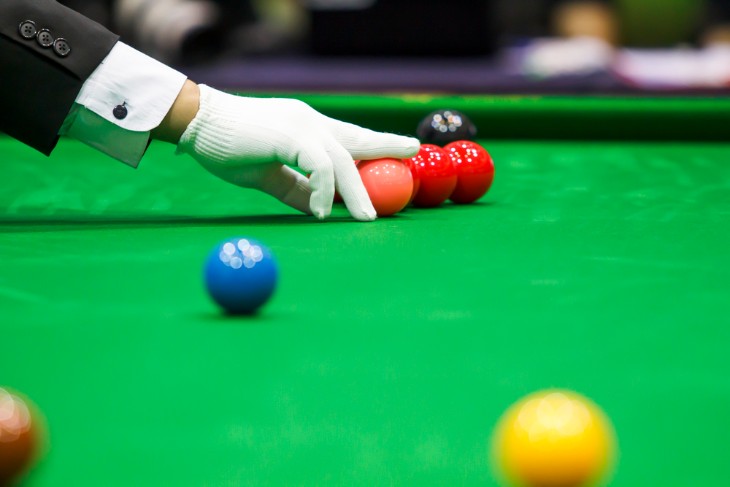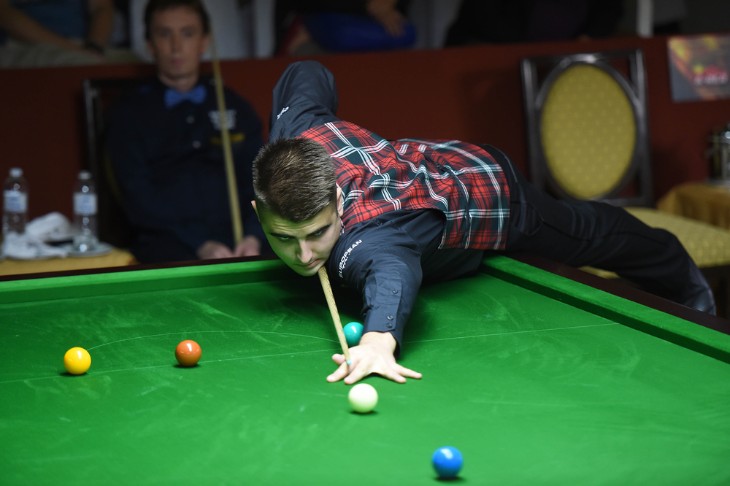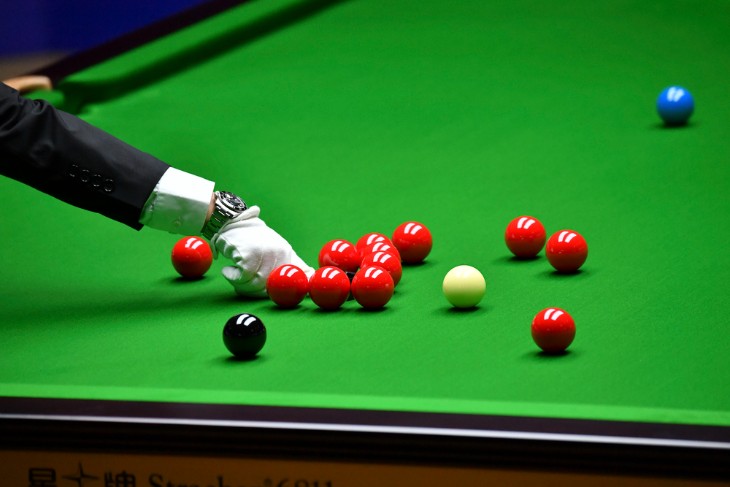Sportsmanship in Snooker
Sportsmanship is a fundamental aspect of snooker, reflecting the core values of fairness, integrity, and respect for opponents. In the world of snooker, sportsmanship extends far beyond merely adhering to the rules of the game; it encompasses a commitment to ethical conduct both on and off the snooker table. The players are expected to exhibit a high level of sportsmanship, setting an example for others in the sporting community.
- One of the key elements of sportsmanship in snooker is the acknowledgment of your opponent's performance. A common practice is to applaud a well-executed shot, irrespective of whether it benefits your opponent or not. This show of respect highlights the sportsmanlike nature of the game.
- Additionally, players are expected to maintain a calm and composed demeanor, refraining from unsportsmanlike behavior such as shouting, using offensive language, or displaying excessive frustration, all of which detract from the decorum of the sport.
- Another crucial aspect of sportsmanship is the acceptance of victory and defeat with grace. In snooker, as in any sport, wins and losses are part of the game. How a player reacts to these outcomes speaks volumes about their sportsmanship. A gracious winner acknowledges the effort put forth by their opponent, while a gracious loser does not blame external factors for their defeat but instead takes it as an opportunity for improvement.
The Role of the Referee
In snooker, the role of the referee is pivotal in ensuring fair play and adherence to the rules. The referee's responsibilities encompass a wide range of duties. This impartial figure is crucial for upholding the ethical standards of the game.
- Referees ensure fair play and adherence to rules, maintaining the game's integrity.
- They observe shots, call fouls, and enforce rules impartially.
- Referees penalize unsportsmanlike behavior, reinforcing ethical standards.
- They are crucial in fostering an environment of respect and sportsmanship.
The Etiquette of Snooker Play
In keeping with the spirit of mutual respect and courtesy customary when playing snooker, following the unwritten rules of the world of snooker is as important as mastering the technical aspects of snooker.
- One prominent aspect of snooker etiquette is the concept of giving your opponent space and concentration, as snooker is a game that demands immense focus and precision. This means avoiding unnecessary movements, distractions, or conversation when it is your opponent's turn to play.
- Another critical element of snooker etiquette is the acknowledgment of fouls and errors. When a player commits a foul, they are expected to immediately and openly admit it. Attempting to conceal a foul or hoping that it goes unnoticed is considered dishonorable and unethical.
Fair Play
Even in the heat of the game, no snooker player should lose sight of the principles of ethical and fair play. This means refraining from exploiting loopholes in the rules or resorting to gamesmanship to gain an advantage. Such actions may be technically legal but are frowned upon in snooker circles. Players are encouraged to take the high road and not engage in actions that undermine the essence of fair competition. Honesty is paramount when it comes to scoring and fouls. Players are expected to keep an accurate account of their own scores and readily acknowledge any fouls they commit.

The Importance of Respect
Respect is an overarching principle in snooker, permeating every aspect of the game. This respect extends to the game itself, the equipment, the opponent, and the officials. The snooker table is treated with reverence, and likewise, players should handle their cues and the balls with care.
Respecting one's opponent is a cardinal rule in snooker. Players refrain from unsportsmanlike behavior such as attempting to distract or psych out the other player. In snooker, victory is earned through skill and strategy, not through the intimidation or discomfort of the opponent.
Furthermore, respect for the officials, particularly the referee, is imperative. Questioning or disputing the referee's decisions is generally discouraged and can result in penalties. The referee's role is to maintain order and fairness, and respecting their judgment is an essential part of the ethical conduct expected from snooker players.
Handling Errors and Fouls
Mistakes are inevitable in a game that demands precision and concentration. When a player makes an error, such as missing an easy shot, it is important to remain composed and refrain from displaying frustration or anger. Similarly, fouls should be handled respectfully and in accordance with the rules. rather than on disputes or conflicts.
- Errors and fouls should be handled gracefully and respectfully.
- Players should remain composed when making errors.
- Confrontational behavior over fouls is discouraged.
- Ethical conduct in handling errors and fouls promotes sportsmanship.
The Psychology of Snooker
Understanding the psychological aspects of snooker is essential for players who aspire to excel in the game. Snooker, more than just a physical sport, is a mental challenge that requires players to manage their emotions, maintain focus, and make strategic decisions under pressure.
One of the key psychological elements in snooker is maintaining concentration. Players must stay focused throughout a match, as a lapse in concentration can lead to missed shots and lost opportunities. Players have in place many practices to help them maintain their focus an stay in the zone, and keep their emotions in check.
- Routines and rituals
- Deep breathing
- Visualization
- Positive self-talk

The Code of Conduct for Players
In snooker, there exists a formal Code of Conduct that outlines the expected behavior and ethical standards for players. This code is not merely a set of guidelines but a binding set of rules that players are obliged to follow. Failure to adhere to this code can result in penalties, including the loss of frames or matches.
The Code of Conduct for players includes provisions for maintaining sportsmanship, showing respect for opponents and officials, and playing the game with integrity. It also addresses issues such as dress code, punctuality, and adherence to the rules of the game.
The Code of Conduct encompasses many aspects of the game and outside it. It consists of guidelines for players' behaviour off the table, emphasising the need to represent the sport in a positive light and to avoid actions that could bring the sport into disrepute. In essence, the Code of Conduct for players is a comprehensive framework that underscores the ethical principles and values of snooker, ensuring that they are upheld by all who participate in the game.
The Legacy of Snooker Ethics
The legacy of snooker ethics is carried forward by the governing bodies and organizations associated with the sport. These entities are responsible for ensuring that the Code of Conduct is enforced and that the principles of the game are upheld. They also play a role in educating players, referees, and fans about the importance of ethical conduct in snooker. As a result, snooker continues to be a sport that stands out for its commitment to fair play and integrity.
Furthermore, the legacy of snooker ethics extends to the fans and spectators who appreciate the sport. Snooker enthusiasts appreciate the grace and sportsmanship displayed by their favorite players. They understand the importance of respect and fair play in maintaining the spirit of the game.
Conclusion
In conclusion, snooker is not merely a game of skill and strategy; it is a sport deeply rooted in ethics and morals. From its origins in the British Empire to its global popularity today, snooker has maintained a commitment to principles such as sportsmanship, respect, and fair play. These unwritten rules and ethical standards are as vital to the sport as the rules of the game themselves




.webp)






